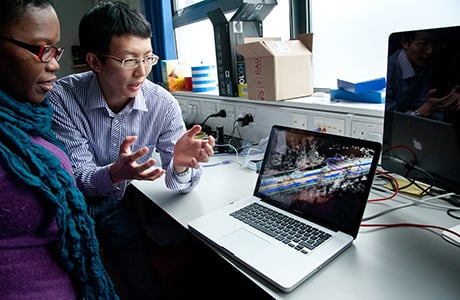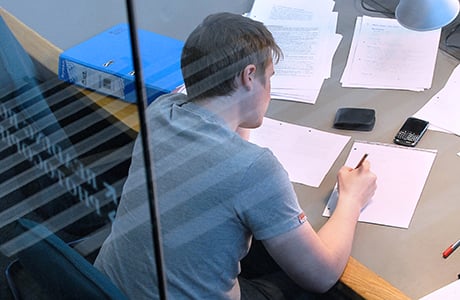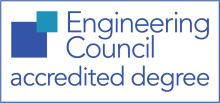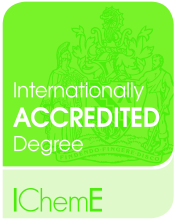
Engineering Science
Course overview
UCAS code: See course options
Entrance requirements: A*A*A (with the A*s in Maths, Further Maths or Physics).
Course duration: 4 years (MEng)
Subject requirements
Required subjects: Maths and Physics
Recommended subjects: Maths Mechanics modules
Helpful subjects: Further Maths
Other course requirements
Admissions tests: PAT
Written Work: None
Admissions statistics*
Interviewed: 38%
Successful: 16%
Intake: 172
*3-year average 2022-24
Contact
Tel: +44 (0) 1865 283263
Email: [email protected]
Unistats information for this course can be found at the bottom of the page
Please note that there may be no data available if the number of course participants is very small.
About the course
Engineering Science encompasses a vast range of subjects, from microelectronics to offshore oil platforms. The course involves the application of creative reasoning, science, mathematics (and, of course, experience and common sense) to real problems.
The Department of Engineering Science at Oxford has a top-level quality assessment rating for teaching and a world-class reputation for research.
We believe that future engineering innovation will benefit from broad foundations as well as specialised knowledge. Because of this, undergraduate teaching is based on a unified course in Engineering Science, which integrates study of the subject across the traditional boundaries of engineering disciplines. Links between topics - in apparently diverse fields of engineering - provide well-structured fundamental understanding, and can be exploited to give efficient teaching.
The Engineering Science programme is a four-year course, leading to the degree of Master of Engineering. The first two years are devoted to topics that we believe all Engineering undergraduates should study.
In the third and fourth years there is scope for specialisation into one of six branches of engineering:
- Biomedical
- Chemical
- Civil
- Electrical
- Information
- Mechanical.
Decisions about which of these will be your specialisation can be deferred until the third year.
The course is accredited every five years by the major engineering institutions. Engineering Science is currently accredited by IChemE, IET, InstMC, IMechE, JBM and RAeS on behalf of the Engineering Council for the purposes of fully meeting the academic requirement for registration as a Chartered Engineer.
- IChemE, IET, InstMC, IMechE, JBM (ICE, IStructE, CIHT, IHE, PWI), RAeS: up to 2027 intakes
Industrial experience is an extremely important adjunct to an academic engineering education, and undergraduates are strongly encouraged to obtain it. One way to do so is by being sponsored. Further information is generally available through your careers teacher, or from the engineering institutions. If your sponsoring company wants you to spend a year with them before university, you will be asked to declare this at your interview and in your UCAS application.
Astrophoria Foundation Year
If you’re interested in studying Engineering Science but your personal or educational circumstances have meant you are unlikely to achieve the grades typically required for Oxford courses, then choosing to apply for Engineering Science with a Foundation Year might be right for you.
Visit our Foundation Year course pages for more details.
 |  | |
'I’m currently designing an offshore device that could convert wave energy in the sea into electricity, to be transmitted back to land. There are five people in my team, working on this for our third year project. I particularly enjoy it because I am putting into practice everything that I have been learning over the last two years. I was attracted by the academic challenge of studying at one of the top universities in the world, and the Engineering Science course at Oxford really caught my eye because students cover a wide spectrum of engineering before choosing specialised options. I was convinced that the course would provide me with a broad foundation to understand and tackle real-world engineering problems, which cannot be solved solely by one discipline of engineers.' Stephen | 'This year I’m working on a project that involves designing and building wind turbines and the control systems behind it. The aim of my project is to maximise the efficiency of wind turbines. The project was actually sponsored by a Scottish company who approached Oxford University; they were looking for someone to cooperate with them in designing and building an unplugged house, which is a house powered by green energy alone. My project involves building the wind turbine systems… throughout this year I’ve developed a process which is better than existing systems by 5-6% and I think that’s a great achievement for a year’s work. Hopefully I’ll continue working with them after the term has ended and see my system become a reality.' Yuan Gao |
Unistats information
Discover Uni course data provides applicants with Unistats statistics about undergraduate life at Oxford for a particular undergraduate course.
Please select 'see course data' to view the full Unistats data for Engineering Science.
Please note that there may be no data available if the number of course participants is very small.
Visit the Studying at Oxford section of this page for a more general insight into what studying here is likely to be like.
Engineering Science
A typical week
As a guide, in an average week you will have approximately ten lectures and two college tutorials or classes. In some weeks in the first two years you will also have up to five hours of practical work.
In the third year each student spends an average of one day a week on their group project work. The individual project in the fourth year takes approximately two and a half days a week.
Class and tutorial group sizes are designed to allow students to discuss the contents of specific lectures with a tutor and their peers. In the first two years tutorials are delivered in colleges, typically in groups of 2-4 students. In the third year the department organises tutorials for groups of up to 4 students. In the final year class sizes vary, but there are no more than 15 students per class.
Lectures are delivered by the academic staff of the department, who are experts in their areas of research and typically have years of teaching experience. Tutorials and classes are delivered by a tutor, who might be a member of the academic staff, a postgraduate student – studying at doctoral level – or a postdoctoral research assistant within the department. Practical laboratory sessions are supervised by experienced academics and technical staff.
Visit our Academic Year page to find out more about how our teaching year is structured.
Year 1
Courses | Assessment |
|---|---|
| First University examinations: four written papers; Assessment of Engineering practical work |
Year 2
Courses | Assessment |
|---|---|
|
Final University examinations, Part A: four written papers; Assessment of Engineering practical work |
Year 3
Courses | Assessment |
|---|---|
|
Final University examinations, Part B: six written papers; Assessment of Engineering practical work; Project reports (Engineering computation and design Project) |
Year 4
Research | Assessment |
|---|---|
A major project, plus six specialist courses chosen from within the areas of:
| Final University examinations, Part C: six written papers; Project report |
The options listed above are illustrative and may change. More information about current options is available on the Engineering Department's website.
The content and format of this course may change in some circumstances. Read further information about potential course changes.
Academic requirements
Qualification | Requirement |
|---|---|
A-levels: | A*A*A to include Mathematics and Physics. The A*s must be in Mathematics, Physics or Further Mathematics |
Advanced Highers: | AA/AAB |
International Baccalaureate (IB): | 40 (including core points) with 776 at HL (with 7s in HL Mathematics and Physics) |
Advanced diploma in Engineering (Level 3) | Advanced Diploma in Engineering (Level 3), as long as you also achieve an A-level in Physics, and the new Level 3 Certificate in Mathematics for Engineering. These qualifications can be presented as the additional specialist learning component of the diploma. Offers will specify the necessary results in A-level Physics, the Level 3 certificate in Mathematics for Engineering, the Extended Project and the Principal Learning of the diploma. |
BTEC | National Extended Diploma (BTEC) with grades D*D*D or BTEC National Foundation Diploma with Grade D* and A-level grades A*A in Maths and Physics |
Any other equivalent qualification: | View information on other UK qualifications, and international qualifications. |
Wherever possible, your grades are considered in the context in which they have been achieved.
Read further information on how we use contextual data.
For candidates who are predicted A*AA, serious consideration will be given to extenuating circumstances, such as disruption to education or bereavement, which have led to under-performance in exams and which are described in their application. Any offer would be conditional on achieving A*A*A.
Subject requirements
Essential: | Candidates are expected to have Physics and Mathematics to A-level, Advanced Higher, Higher Level in the IB or any other equivalent. |
|---|---|
Helpful: | Further Mathematics can be helpful to students in completing this course, although it is not required for admission. |
If, and only if, you have chosen to take any science A-levels, we expect you to take and pass the practical component in addition to meeting any overall grade requirement.
If English is not your first language you may also need to meet our English language requirements.
If your personal or educational circumstances have meant you are unlikely to achieve the grades listed above for undergraduate study, but you still have a strong interest in the subject, then applying for Engineering Science with a Foundation Year might be right for you.
Visit the Foundation Year course pages for more details of academic requirements and eligibility.
Applying
All candidates must follow the application procedure as shown in Applying to Oxford. The information below gives specific details for students applying for this course.
Admissions test
| Test: | PAT |
|---|---|
| Test dates: | 22 & 23 October 2025 |
| Registration window: | Registration: 18 June – 19 September (6pm BST) Booking: 18 August – 26 September (6pm BST) |
All candidates must take the Physics Admissions Test (PAT) as part of their application.
All the information you need to arrange to take your test as well as how best to prepare can be found on your test page.
ADVANCE NOTICE OF NEW ARRANGEMENTS FOR 2026 ADMISSIONS TESTS can be found at: www.ox.ac.uk/tests
Updates to the PAT
The test consists of maths and physics questions, which are mixed in sequence (there are not separate maths or physics sections). Formula sheets, tables and data books are not permitted. Calculators have been permitted since 2018.
Guidelines about the use of calculators along with details of the syllabus and links to supporting materials which candidates are encouraged to look at for preparation are available on the Physics website.
Written work
Applicants are not required to submit other written work as part of their application.
What are tutors looking for?
Enthusiasm for engineering combined with high ability in mathematics and physics is essential for those wishing to study any engineering course. These qualities will be tested at the interview and combined with an assessment of your predicted and attained examination performance (especially in mathematics and physics, and your PAT score) to decide who will be offered places.
Visit the Engineering Science website for more detail on the selection criteria for this course.
Careers
Oxford Engineering Science graduates work in many different sectors such as:
- banking and investment
- consultancy
- accountancy
- IT and computing
- energy and the environment.
However, as you may expect, most go on to work in the engineering and manufacturing sector. Some decide to continue their studies at Oxford, or elsewhere, by working towards a doctorate.
Mark now works as a race strategy modeller at Ferrari and says:
‘My work involves applying mathematical techniques to a variety of engineering problems related to Formula One cars. One recent example has been with race strategy, where we try to choose the optimum times to pit the car throughout a race and the best tyres to put on. I believe the reputation of the Oxford engineering degree was an important factor in securing a job in Formula One.’
We don't want anyone who has the academic ability to get a place to study here to be held back by their financial circumstances. To meet that aim, Oxford offers one of the most generous financial support packages available for UK students and this may be supplemented by support from your college.
Fees
Please note that for full-time Home undergraduate students, current university policy is to charge fees at the level of the cap set by the government, which for 2026/27 is £9,790. For details of annual increases, please see our guidance on likely increases to fees and charges. In the 2027/28 academic year course fees for Home fee status students will rise to £10,050 (in line with the government fee cap).
Fee status | Annual Course fees |
| Home | £9,790 |
| Overseas | £62,820 |
Further details about fee status eligibility can be found on the fee status webpage.
For more information please refer to our course fees page. Fees will usually increase annually. For details, please see our guidance on likely increases to fees and charges.
Living costs
Living costs at Oxford might be less than you’d expect, as our world-class resources and college provision can help keep costs down.
Living costs for the academic year starting in 2026 are estimated to be between £1,405 and £2,105 for each month you are in Oxford. Our academic year is made up of three eight-week terms, so you would not usually need to be in Oxford for much more than six months of the year but may wish to budget over a nine-month period to ensure you also have sufficient funds during the holidays to meet essential costs. For further details please visit our living costs webpage.
Financial support
Home | A tuition fee loan is available from the UK government to cover course fees in full for Home (UK, Irish nationals and other eligible students with UK citizens' rights - see below*) students undertaking their first undergraduate degree**, so you don’t need to pay your course fees up front. In 2026 Oxford is offering one of the most generous bursary packages of any UK university to Home students with a family income of around £50,000 or less, with additional opportunities available to UK students from households with incomes of £32,500 or less. The UK government also provides living costs support to Home students from the UK and those with settled status who meet the residence requirements. *For courses starting on or after 1 August 2021, the UK government has confirmed that EU, other EEA, and Swiss Nationals will be eligible for student finance from the UK government if they have UK citizens’ rights (i.e. if they have pre-settled or settled status, or if they are an Irish citizen covered by the Common Travel Area arrangement). The support you can access from the government will depend on your residency status. |
Islands | Islands students are entitled to different support to that of students from the rest of the UK. Please refer the links below for information on the support to you available from your funding agency: |
Overseas | Please refer to the "Other Scholarships" section of our Oxford Bursaries and Scholarships page. |
**If you have studied at undergraduate level before and completed your course, you will be classed as an Equivalent or Lower Qualification student (ELQ) and won’t be eligible to receive government or Oxford funding
Additional Fees and Charges Information for Engineering Science
There are no compulsory costs for this course beyond the fees shown above and your living costs.
Contextual information
Unistats course data from Discover Uni provides applicants with statistics about a particular undergraduate course at Oxford. For a more holistic insight into what studying here is likely to be like, please view the information below and explore our website more widely.
The Oxford tutorial
College tutorials are central to teaching at Oxford. Typically, they take place in your college and are led by your academic tutor(s) who teach as well as do their own research. Students will also receive teaching in a variety of other ways, depending on the course. This will include lectures and classes, and may include laboratory work and fieldwork. However, tutorials offer a level of personalised attention from academic experts unavailable at most universities.
During tutorials (normally lasting an hour), college subject tutors will give you and one or two tutorial partners feedback on prepared work and cover a topic in depth. The other student(s) in your tutorials will typically be doing the same course as you and covering the same topic. Such regular and rigorous academic discussion develops and facilitates learning in a way that isn’t possible through lectures alone. Tutorials also allow for close progress monitoring so tutors can quickly provide additional support if necessary.
Read more about tutorials and an Oxford education
College life
Our colleges are at the heart of Oxford’s reputation as one of the best universities in the world.
- At Oxford, everyone is a member of a college as well as their subject department(s) and the University. Students therefore have both the benefits of belonging to a large, renowned institution and to a small and friendly academic community. Each college or hall is made up of academic and support staff, and students. Colleges provide a safe, supportive environment leaving you free to focus on your studies, enjoy time with friends and make the most of the huge variety of opportunities.
- Each college has a unique character, but generally their facilities are similar. Each one, large or small, will have the following essential facilities:
- Porters’ lodge (a staffed entrance and reception)
- Dining hall
- Lending library (often open 24/7 in term time)
- Student accommodation
- Tutors’ teaching rooms
- Chapel and/or music rooms
- Laundry
- Green spaces
- Common room (known as the JCR).
- All first-year students are offered college accommodation either on the main site of their college or in a nearby college annexe. This means that your neighbours will also be ‘freshers’ and new to life at Oxford. This accommodation is guaranteed, so you don’t need to worry about finding somewhere to live after accepting a place here, all of this is organised for you before you arrive.
- All colleges offer at least one further year of accommodation and some offer it for the entire duration of your degree. You may choose to take up the option to live in your college for the whole of your time at Oxford, or you might decide to arrange your own accommodation after your first year – perhaps because you want to live with friends from other colleges.
- While college academic tutors primarily support your academic development, you can also ask their advice on other things. Lots of other college staff including welfare officers help students settle in and are available to offer guidance on practical or health matters. Current students also actively support students in earlier years, sometimes as part of a college ‘family’ or as peer supporters trained by the University’s Counselling Service.
Connect with us
Outreach programmes and events
The Department of Engineering Science runs dedicated outreach programmes, events and activities aimed at promoting engineering and supporting talented students from all backgrounds to apply to the course.
Teachers, school students and parents are invited to join the Department of Engineering Science mailing list to hear about upcoming opportunities.
Programmes and subject-specific resources
The Department of Engineering Science is committed to identifying talented, passionate young people, regardless of personal or academic background and encouraging them to make competitive applications to Oxford University.
In partnership with the Waste Environmental Research Trust, the Department runs two separate residential programmes for Year 10 state school students from underrepresented backgrounds. These Uncover Engineering Programmes offer the opportunity to visit Oxford University and learn more about Engineering Science.
UK state school students interested in engineering can apply to UNIQ, Oxford’s flagship outreach programme for students in their first year of further education. Each year, UNIQ provides over 1,500 students with the opportunity to experience Oxford teaching and receive application support.
Anyone interested in studying Engineering at Oxford is encouraged to explore details of subject-specific opportunities and resources on the Department of Engineering Science website. Please note that some outreach events may require advance booking or have specific eligibility criteria.
Department contact details
![]() +44 (0) 1865 273000
+44 (0) 1865 273000![]() [email protected]
[email protected]![]() www.eng.ox.ac.uk/study/support-for-schools-and-young-people
www.eng.ox.ac.uk/study/support-for-schools-and-young-people
University-wide events and resources
In addition to exploring department-run activities, we recommend checking out the outreach event calendar for upcoming University-wide events and other subject and college activities.
Subject-specific resources supporting supercurricular engagement for all ages can also be found via the University's Digital Resource Hub, suggested subject resources webpage and Oxplore, our online learning platform for 11-to-18-year-olds.
Prospective applicants can sign up to receive step-by-step support with their Oxford application.
Read more about Oxford's widening access initiatives and other ways to connect with us before applying.


